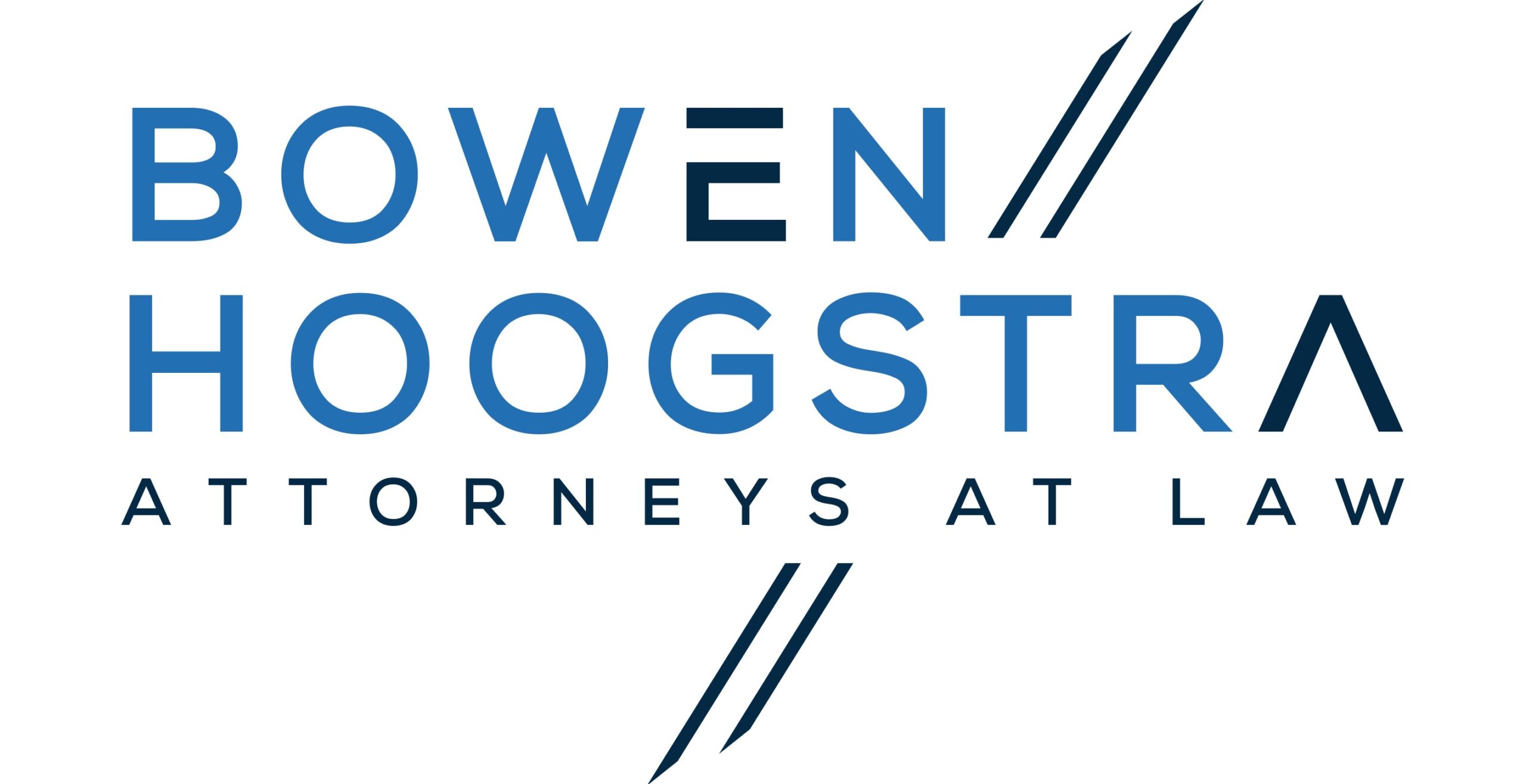Shareholder disputes are a common challenge in the business world, affecting companies across different sectors. These disagreements arise from the complex relationships and conflicting interests among shareholders. To maintain a stable and thriving business environment, let our Muskegon business lawyer help you understand why these disputes happen and guide you on how to prevent and resolve them effectively.
- Causes of Shareholder Disputes
- Communication and Conflict Resolution
- Buy-Sell Agreements
- Fix Shareholder Disputes the Legal and Correct Way With Bowen Law
Causes of Shareholder Disputes
Shareholder disputes can be disruptive and detrimental to a business. These disagreements can stem from a variety of reasons, including:
-
- Differences in Business Strategy and Vision. Shareholders may have diverse views on the long-term goals and strategic direction of the company. Disagreements can arise when stakeholders envision distinct paths for growth, market positioning, or product development. For instance, one shareholder may advocate for aggressive expansion, while another may prefer a more conservative approach, leading to tensions over the level of risk the company should undertake.
- Disagreements Over Financial Matters. Shareholders often expect returns on their investments, and disputes can emerge over the allocation of profits. Differing opinions on the distribution of dividends or reinvestment of earnings can lead to disagreements. In Schimke v. Liquid Dustlayer, Inc., for example, the defendant refused to pay dividends to the plaintiff, who owned nearly one-third of the company. Under the Michigan Business Corporation Act, a shareholder has the right to pursue legal action against willfully unfair and oppressive conduct. In this case, the defendant deprived the plaintiff of any benefits from his ownership. As a result, the court ruled in favor of the plaintiff, awarding him $769,600 for his minority interest.
- Disputes Arising from Management and Decision-Making. Differences in management styles among executives or board members can lead to shareholder disputes. Autocratic versus collaborative decision-making approaches may create tension and hinder effective governance.
- Personal Conflicts and Communication Breakdowns. Poor communication or a lack of transparency between shareholders, executives, and board members can fuel misunderstandings and suspicions. Inadequate information flow can contribute to an environment ripe for disputes. Moreover, personal conflicts, such as long-standing grievances, rivalries, or incompatible personalities, can significantly impact the working dynamics within a company.
Communication and Conflict Resolution
Open and transparent communication is fundamental in preventing and resolving shareholder disputes. Trust is the foundation of any successful business relationship, and clear communication helps build and maintain that trust. Regular updates on the company’s performance, financial health, and strategic direction can help minimize uncertainty and speculation, reducing the likelihood of disputes. When shareholders are well-informed, they are more likely to align their expectations with the company’s objectives.
However, if a shareholder dispute cannot be resolved through communication, bringing in a neutral third party can be an effective way to do it. A mediator facilitates discussions between parties, helping them understand each other’s perspectives and guiding them toward mutually agreeable solutions. In cases where mediation is unsuccessful, arbitration can be an alternative, where a neutral arbitrator or panel reviews the case and makes a binding decision. While more formal than mediation, arbitration is often faster and less costly than traditional litigation.
Having a shareholder agreement in place can streamline resolution efforts and prevent disputes from escalating to costly and time-consuming legal battles. Shareholder agreements explicitly outline the rights and responsibilities of each shareholder, reducing ambiguity and potential areas of disagreement. These agreements often address issues such as decision-making authority, profit distribution, and dispute resolution mechanisms.
Buy-Sell Agreements
While a shareholder agreement addresses a broader scope of shareholder disputes, a buy-sell agreement is a legal document specifically designed to govern the transfer of ownership interests in a business, particularly in closely held corporations, partnerships, and limited liability companies (LLCs). The primary purpose of buy-sell agreements is to establish a clear process for handling the transfer of ownership interests in the event of specific triggering events, such as the death, disability, retirement, or voluntary departure of a shareholder. These agreements help prevent shareholder disputes by outlining provisions and procedures for the sale or transfer of shares.
Drafting a buy-sell agreement requires legal expertise, and seeking legal assistance from a qualified Muskegon business lawyer ensures the agreement complies with the applicable laws and regulations, meets the unique needs of the business, and provides a clear and enforceable framework for the orderly transfer of ownership interests. Moreover, these legal professionals can help you review and, if necessary, update buy-sell agreements to account for changes in the business environment, ownership structure, or other factors that may impact the effectiveness of the agreement over time.
Fix Shareholder Disputes the Legal and Correct Way With Bowen Law
If you find yourself entangled in a shareholder dispute, don’t navigate the legal complexities alone. Let Bowen Hoogstra Law be your partner in resolution. Our team of experienced Muskegon business lawyers understands the nuances of corporate law and shareholder rights, guiding you through every step of the dispute resolution process. We are committed to providing you with a favorable resolution outcome, ensuring your rights and interests are protected. Call us today at (231) 726-4484 or reach us here to schedule a consultation.


